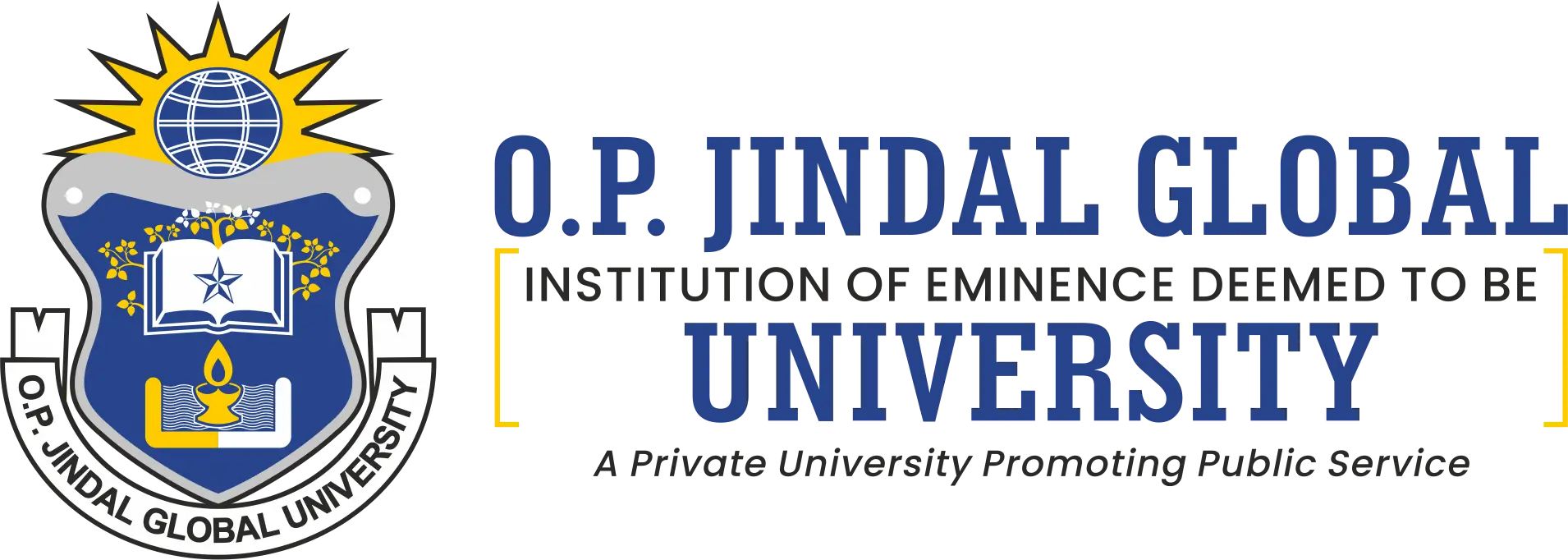IIHEd organises International Doctoral Education Conference


International Institute for Higher Education Research and Capacity Building (IIHEd), in partnership with the Office of Doctoral Studies, hosted for the first time a two-day International Doctoral Education Conference titled 'Into the Future of Doctoral Education' at JGU from December 9 to 10.
The conference was launched by Professor (Dr.) C. Raj Kumar, the Founding Vice Chancellor of JGU, who delivered the inaugural keynote address. In his keynote address, Professor Raj Kumar highlighted several pressing issues in doctoral education research today. He emphasised the necessity for interdisciplinary research to address the complex and urgent problems facing the world, along with the challenges involved in conducting such studies. He pointed out the lack of consensus and clarity among universities regarding the impact of artificial intelligence on the authenticity and credibility of doctoral research. Referring to constitutional historian Granville Austin, Prof. Raj Kumar also stressed the importance of imbibing the value of intellectual humility for producing high-quality research.
In her welcome address, Professor (Dr.) Mousumi Mukherjee, Deputy Director, IIHEd, gave an overview of the events and speakers lined up for the 2-day conference and talked about the events, ideas, initiatives, and actors all of which led to the genesis of this conference at JGU. Other distinguished keynote speakers included Professor (Dr.) Chris Rolph, Director of the Nottingham Institute of Education in the UK; Professor (Dr.) Svetlana Zhuchkova, Deputy Director of the Institute of Education at HSE University in Moscow, Russia; and Professor (Dr.) Maresi Nerad, Emeritus Professor at the University of Washington, USA.
In her presentation, Prof. Zhuchkova described the doctoral education reforms in Russia and global trends, efficiency indicators, and problems and challenges of doctoral education. She dwelled on the need for the Russian doctoral education system to introduce newer types of doctorates, such as industrial and integrated master and PhD programmes, develop more holistic admission criteria, and provide better funding and collective support for doctoral candidates.
In his keynote address, Prof. Rolph explained his vast experience of supervising doctoral candidates and his understanding of the doctoral education landscape and made several key insights and suggestions on improving supervisory practices in the changed environment of doctoral education. He stressed the need for supervisors to engage in open conversations with their doctoral candidates about the ethical use of generative AI for enhancing their learning rather than undermining it.
Professor Nerad, in her keynote, addressed the possible directions for future research on doctoral education and provided an overview of the structures and processes in the US doctoral education system. She spoke about the professional and intercultural skills that the next generation of researchers needs to develop in addition to academic research skills and, in doing so, the need to embrace the concepts of the global village and communities of practice in doctoral education. Together, the comparative insights from the keynote speakers highlighted several best practices and future directions for doctoral education, research, and supervision.
The conference had a writing workshop conducted by Prof. Debananda Mishra from IIT Delhi, who is also the Associate Editor of the Higher Education Quarterly, a Wiley journal. His presentation aimed to provide doctoral scholars with a comprehensive understanding of the academic publication process from start to finish. Prof. Mishra emphasised the importance of identifying the scope, thematic focus, and methodological approach of journals, as well as ensuring the presence of an internationally diverse editorial board that understands the relevant context. These factors are critical precursors to the submission process. He then discussed the editorial decision-making process, which depends on having a clear and concise abstract that effectively communicates the thematic fit, the contribution to knowledge and literature, the chosen methodology, and the data presented. Additionally, he highlighted some challenges faced by the editorial team, such as finding suitable peer reviewers, managing harsh criticisms from reviewers, and navigating unforeseen disruptions in the review process. Considering the uncertainty and length of the publication process, he advised scholars to maintain a pipeline of at least three articles in various stages of development at any given time. He encouraged them to persist through critical reviews and to ensure that their research is grounded in solid theoretical frameworks.
The conference also hosted an expert panel discussion consisting of Prof. Debananda Mishra (IIT Delhi), Prof. Pankaj Jalote (IIIT Delhi), Prof. T. Joji Rao (JGU), and Prof. Chris Rolph (NTU), moderated by Prof. Mousumi Mukherjee. They discussed the challenges of doctoral supervision from various disciplinary perspectives. Key issues highlighted were lack of funding, insufficient trained resources, a weak research culture, and inadequate support for doctoral candidates. Concerns were also raised regarding the admission criteria, the quality of PhD programmes, and their overall outcomes. The panel expressed concerns about the overproduction of PhDs and emphasised the need to reassess the objectives of PhD programmes, the importance of considering career paths beyond academia for doctoral candidates, and the necessity of incorporating the voices of doctoral candidates.
The two-day event also featured 3-Minute Thesis presentations from doctoral scholars across different disciplines.
* Mr. Prasanna Kumar (Jindal School of International Affairs) won the Best 3-Minute Thesis Presenter award for presenting on, "India-ASEAN Strategic Relations in Light of the Growing Power Contestation in the Indo-Pacific"
* Ms. Gauri Khanna (IIHEd), who presented on "Narratives of Women Academics from Delhi, India: Higher Education Attainment and Workforce Participation," was the first runner-up
* Ms. Sayani Chatterjee (IIHEd), who discussed "English Literature Curriculum Reforms in Post-Colonial Indian Higher Education" was the second runner-up
The conference featured paper presentations by doctoral candidates and supervisors, along with workshops focused on qualitative and quantitative data analysis. Prof. (Dr.) Deepak Maun led the workshop on Atlas.ti, while Prof. (Dr.) Sanjeev Yadav and Prof. (Dr.) Aaina Dutta conducted a workshop on quantitative data analysis using SPSS. At the conclusion of the conference, Prof. (Dr.) Shantanu Trivedi from the Office of Doctoral Studies delivered the vote of thanks.





